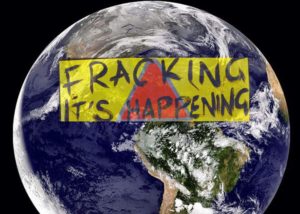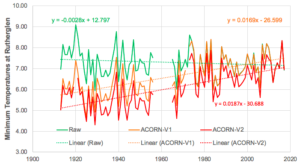by Justin Mikulka, March 4, 2019 in Desmog
The U.S. exported a record 3.6 million barrels per day of oil in February. This oil is the result of the American fracking boom — and as a report from Oil Change International recently noted — its continued growth is undermining global efforts to limit climate change. The Energy Information Administration predicts U.S. oil production will increase again in 2019 to record levels, largely driven by fracking in the Permian shale in Texas and New Mexico.
And the U.S. is not alone in trying to maximize oil and gas production. Despite the financial failures of the U.S. fracking industry, international efforts to duplicate the American fracking story are ramping up across the globe.
The CEO of Saudi Arabian state oil company Aramco recently dismissed the idea that global demand for oil will decrease anytime soon and urged the oil industry to “push back on exaggerated theories like peak oil demand.”
But Saudi Aramco also is gearing up for a shopping spree of natural gas assets, including big investments in the U.S., and increasing gas production via fracking in its own shale fields. Aramco is deeply invested in keeping the world hungry for more oil and gas.
Khalid al Falih, Saudi Arabia’s energy minister, told the Financial Times, “Going forward the world is going to be Saudi Aramco’s playground.” But not if other countries frack there first.
China Expanding Fracking Efforts, Testing New Technology
…

by Prof. Samuel Furfari, 6 mars 2019 in L’Echo
En Belgique francophone, l’intérêt pour la question climatique ne cesse de croître. A la faveur du succès remporté par les écolos aux élections communales d’octobre dernier, les partis francophones se sont lancés dans une surenchère de promesses. A cela viennent se greffer les marches pro-environnement enthousiastes mais néanmoins naïves de lycéens qui, en matière d’énergie et de climat, connaissent très peu de choses. Avec un peu plus de connaissances, ils demanderaient des fenêtres hermétiques et à double vitrage dans leurs classes, au lieu de panneaux photovoltaïques, on y reviendra. En quelques jours on est passé d’un gouvernement critiqué pour être timide à une proposition de loi climat qui n’a pas d’équivalent dans le reste du monde. Car ne nous y trompons pas, la frénésie climatique est belge. Même si on ne devrait pas être étonné que Trump n’ait pas prononcé le mot climat dans son récent discours de l’Union, ce que j’observe professionnellement dans le monde ne correspond en rien à ce que vit la Belgique. Il y a lieu de s’interroger sur les motifs réels de ce déferlement ; ce n’est pas audible pour l’instant mais on devra y répondre un jour.
…
by Jennifer Marohasy, March 5, 2019 in WUWT
The Bureau of Meteorology has rewritten Australia’s temperature in this way for the second time in just six years – increasing the rate of warming by 23 percent between Version 1 and the new Version 2 of the official ACORN-SAT temperature record.
Temperatures from the Rutherglen research station in rural Victoria are one of the 112 weather stations that make-up ACORN-SAT. Temperature have been changed here by Blair Trewin, under the supervision of David Jones at the Bureau.
…

Annual average minimum temperatures at Rutherglen (1913 to 2017). Raw temperatures (green) show a mild cooling trend of 0.28 degrees Celsius per 100 years. This cooling trend has been changed to warming of 1.7 degrees Celsius per 100 years in ACORN-SAT Version 1 (orange). These temperatures have been further remodeled in ACORN-SAT Version 1 (red) to give even more dramatic warming, which is now 1.9 degrees Celsius.
La géologie, une science plus que passionnante … et diverse


